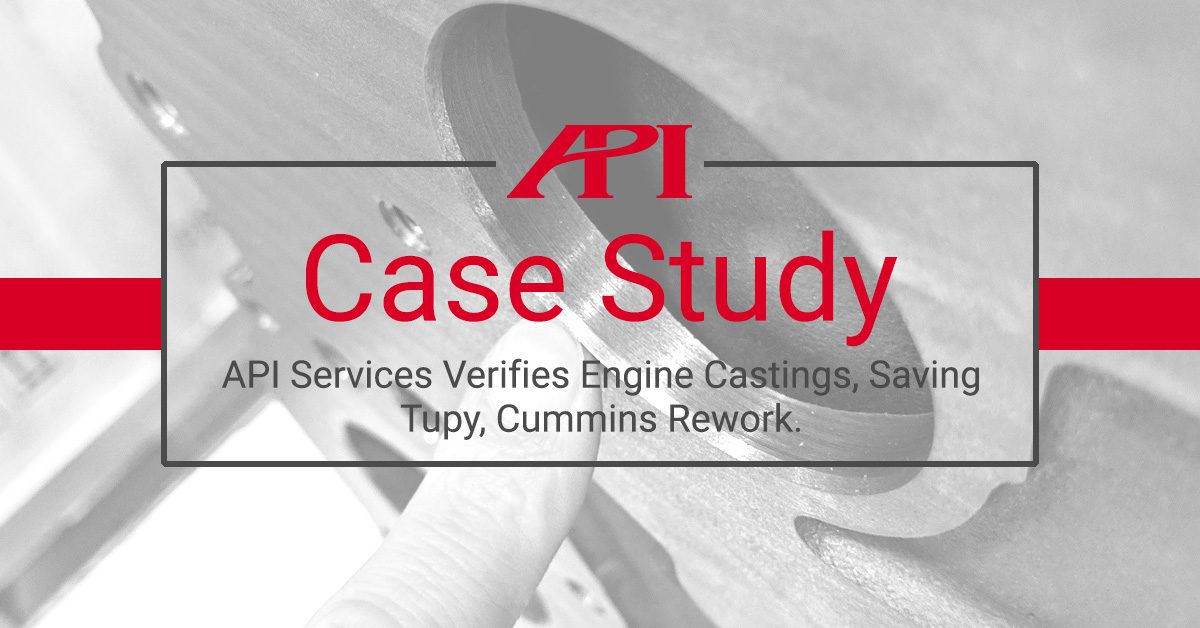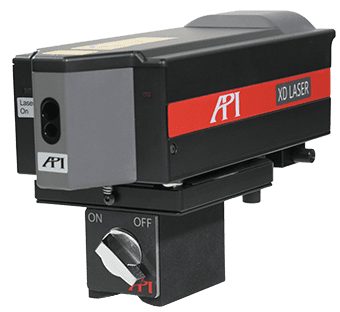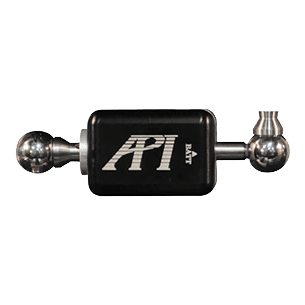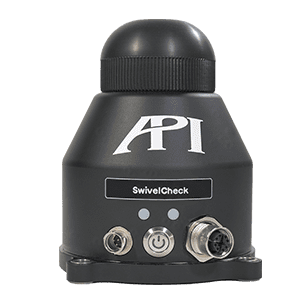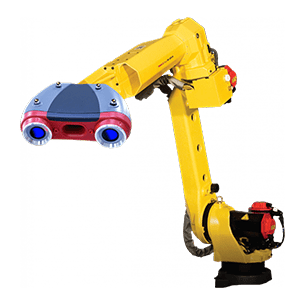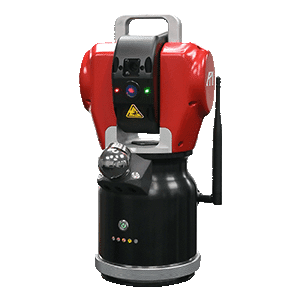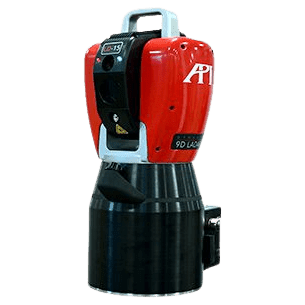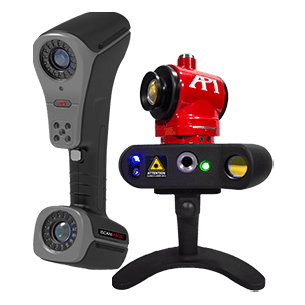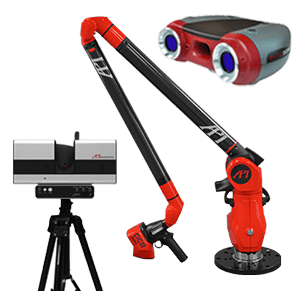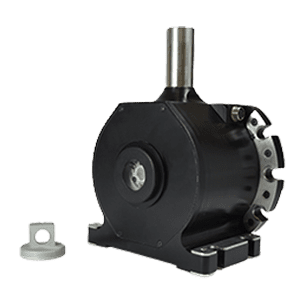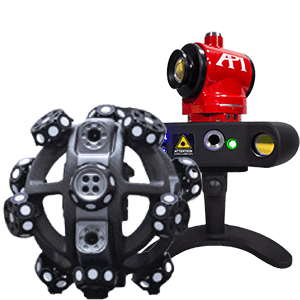API Services Verifies Engine Castings, Saving Tupy, Cummins Rework
MSP Uses Expertise, Scanning Arm to Automate Validation of Raw Castings After Mold Shift
Errors in the machining process are less a question of if, than when. Metrology equipment, Quality Control processes and teams, and best practices are all put into place to safeguard against these errors and minimize their effects. But when they happen, it is important to validate the final products. Just because an error has occurred, does not mean the final product is out of tolerance or needs to be scrapped. Tupy was set to provide raw diesel engine castings to Cummins, but when they received the pre-machined castings from their subsidiary, they discovered the mold had shifted, leading to blocks that were not uniform. Before scrapping the entire run, Tupy reached out to API Services to verify which blocks were useable. Working with Tupy and Cummins, API Services was able to:
- Create a 40-feature inspection parameter process for each block
- Automate the inspection process
- Inspect each of the 1,500 blocks, validating more than 80%
Founded in 1938, in Joinville, Santa Catarina, TUPY has the capacity to produce 835 thousand tons of cast iron pieces annually. They specialize in developing and manufacturing highly engineered structural cast iron components applied to complex metallurgical and geometrical parts extensively used in capital goods that serve freight transport, construction, agriculture and many other industrial applications. Tupy provides Cummins with all the raw castings for their diesel engines. Headquartered in Columbus, IN, Cummins has been innovating the ways the world is powered for more than 100 years. Their products include diesel and gas engines; power systems; and components for filtration, electronics and fuel systems, emissions, turbo, and transmissions.
To help facilitate these castings and keep with demand, Tupy acquired a machine shop in Mexico that provides new material castings that are pre-machined. The goal was to alleviate tooling necessary for Cummins to work the blocks to completion. The issue was that block castings are poured into a pan rail (oil pan rail) at the new machine shop. The lower casting mold shifted during the pour and caused the blocks to come out not in uniform. Material was absent from some and present in others in areas that weren’t desirable. Before sending the blocks to Cummins, Tupy’s machine shop adjusted for the issue, but Cummins wanted to scrap all the blocks from that run of casting. Tupy sent their Quality Controller, Matt Bommarito, to Indiana to manually inspect each block. With 1,500 blocks in the run, Matt’s initial manual measurements weren’t able to encompass all of the issues that Cummins and Tupy wanted to see.
As a final effort to avoid scrapping the run, which would cost both companies a great deal in rework and downtime, Tupy reached out to the team of expert Metrologists at API Services to develop a process for validating the blocks quickly and perform the measurement.
As a final effort to avoid scrapping the run, which would cost both companies a great deal in rework and downtime, Tupy reached out to the team of expert Metrologists at API Services to develop a process for validating the blocks quickly and perform the measurement. After analyzing the blocks and the scope of work, the API Services team proposed to use a CMM arm to inspect various features of each block from the run. API Services’ technicians began by developing the measurement criteria. They worked with 4 different phases of machining from the raw pre-machined blocks to blocks that were machined by Cummins. They were given tolerances by Tupy’s engineers for each feature (approximately 40 features in all, including: crank bearings, piston bore, water jackets, oil rifles, and various casting areas). The tolerances on these features ranged from +/-.150mm to +/-1.5mm depending on how critical each feature was.
Once onsite with the arm, API Services was able to automate the inspection and reporting processes using reverse engineering software to measure and report each block in around 6-7 minutes. They also worked to create an assembly line method for loading and unloading the blocks, which decreased downtime. Once inspection was complete on all 1500 blocks, Tupy was able to use the reports provided by API Services and discuss the results with Cummins to determine the outcome of the blocks. Armed with data, they were able to move forward and keep more than 80% of the blocks from being scrapped.
While it is important to do everything possible to prevent errors in machining and assembly processes, it is equally important to validate all pieces once an error has occurred. Validation can save costly rework and downtime if the part is still within tolerance. Often in cases like this, where two parties disagree on the viability of a product, a third-party Metrology Service Provider (MSP) is needed to produce impartial results that satisfy everyone. API Services offers the unique combination of OEM expertise on API’s complete line of Radian Laser Trackers, Scanners, CMM Arms, and Machine Tool Calibration (MTC) products; decades of experience in applications across industry; and a worldwide presence to provide Globally-Local support to all of their customers. The expert team of Real Metrologists at API Services is standing by to support your metrology needs. Click here to read more and contact the team.
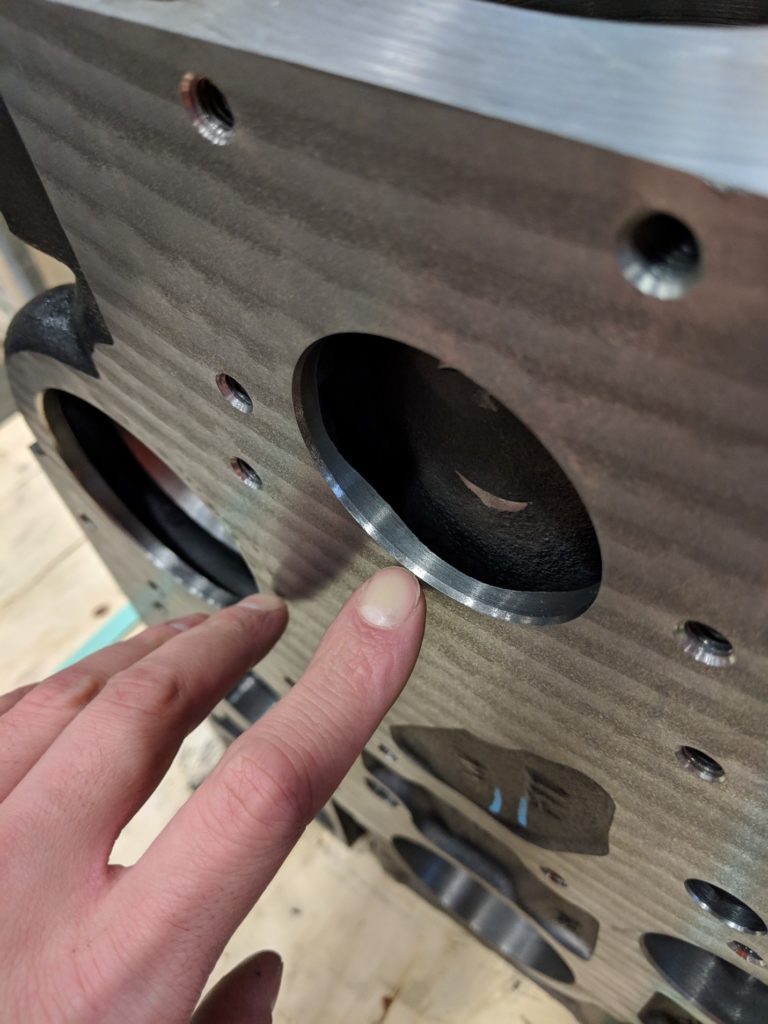
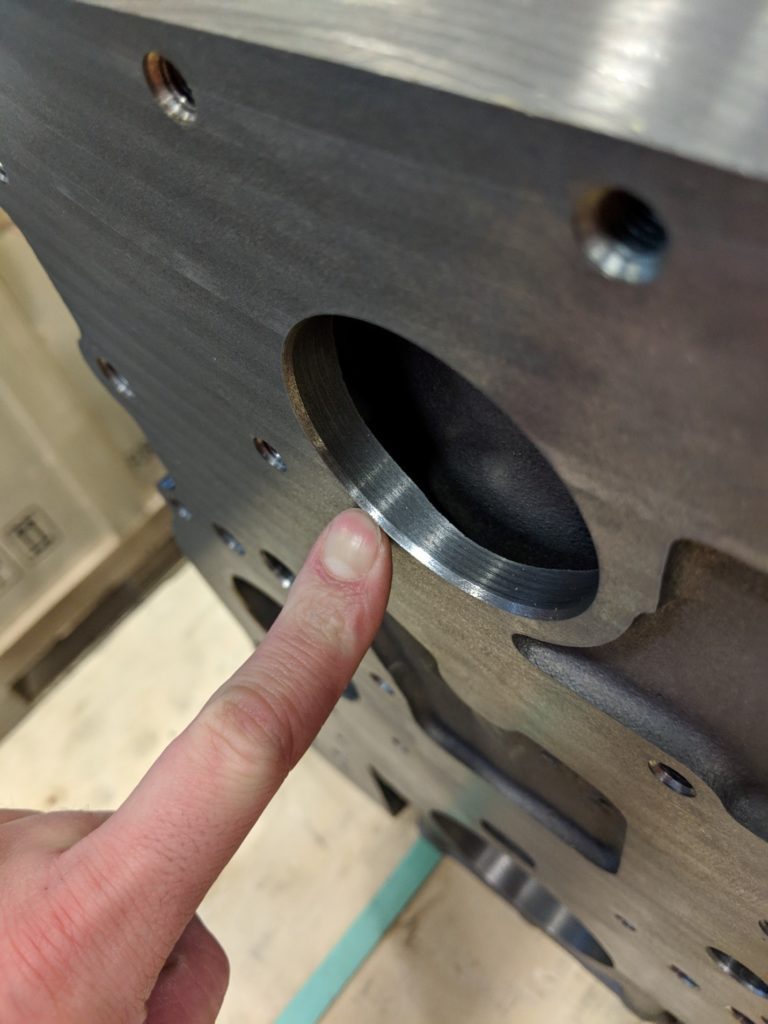
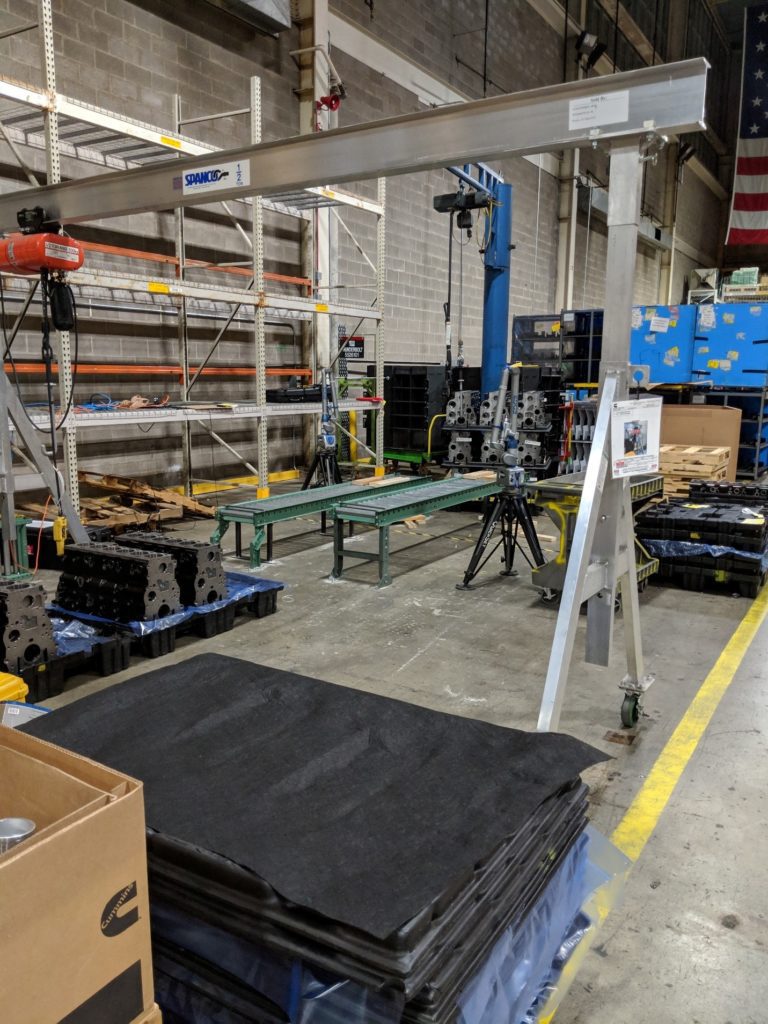
Links from this article:



